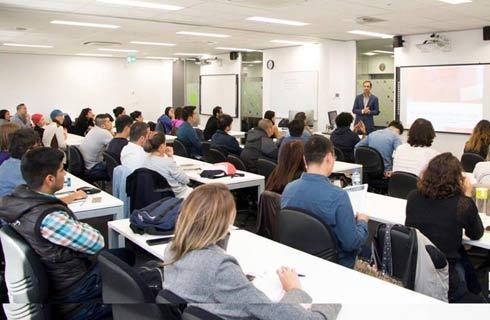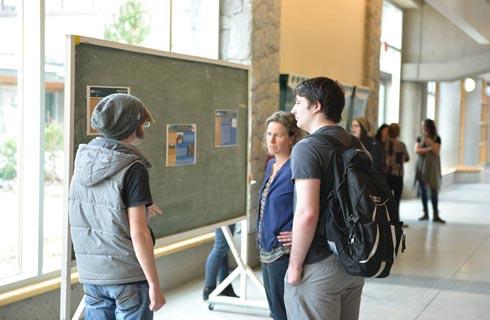Master of Science in Historic Preservation

学历文凭
Masters Degree

专业院系
历史保存和保护

开学时间

课程时长

课程学费

国际学生入学条件
Applicants may submit unofficial transcripts for the purposes of admissions review, but will be required to submit an official transcript from all previous institutions prior to matriculation. International applicants with a foreign language transcript must include an original language copy and official (i.e. notarized) English translation of each transcript. Applicants still in the midst of a program of academic study should provide an official copy of their latest transcript with their application. If accepted, incoming students must then submit an official copy of their final transcript immediately after graduation and prior to enrolling in a School of Architecture graduate program.
The School of Architecture does not list a strict minimum GPA for admission, but does see an applicant's GPA in a previous course of study as one key indicator of future academic performance. Generally, the Admissions Committee seeks a GPA of 3.0 or higher on a 4.0 scale.
The University of Notre Dame recommends a minimum score of 100 (TOEFL) or 7.5 (IELTS) and the School of Architecture graduate programs do as well. Students in the 2-year post-professional program must serve as teaching assistants, a duty which may include grading papers and written tests or offering design critiques for undergraduates. For those in the 2-year or 3-year professional degree or historic preservation programs, taking technical lecture courses can prove difficult for those without a high level of comfort in English.
IDP—雅思考试联合主办方

雅思考试总分
7.5
了解更多
- 雅思总分:7.5
- 托福网考总分:100
- 托福笔试总分:160
- 其他语言考试:NA
CRICOS代码:
申请截止日期:请 与IDP联系 以获取详细信息。
课程简介
The School of Architecture offers a two-year Master of Science in Historic Preservation program, which complements the School's mission in a variety of important ways, and enriches its intellectual life. It has long been felt by faculty and students that an understanding of the techniques and materials employed by well-built historic buildings is natural to an institution dedicated to the design of buildings and places that are lasting and meaningful. This program broadens the School's academic focus and reinforces its curricular objectives by extending its focus to include the analysis and care of great existing buildings and places through thoughtful preservation practices. Historic Preservation is a field that embraces both art and science. Preparing students to enter this field requires a multi-disciplinary approach to a broad range of subjects, including art and architectural history, social sciences, building materials and systems, conservation methods, environmental science, transportation, urban and regional planning, and landscape design. The Master of Science in Historic Preservation program at Notre Dame includes all of these areas of study, integrating them within a distinctive perspective on the relationship between the built environment and contemporary art and culture. The curriculum emphasizes not only the tangible heritage of physical structures and landscapes, but also the intangible heritage of bodies of knowledge, craft traditions, and formal languages that produced our historic places and that, in many cases, survive or are recoverable today. Preservation, from this viewpoint, becomes a bridge uniting past, present, and future.
相关申请

预科

奖学金

实习机会

在校学习

跨境学习

校园授课-线上开始

在线/远程学习
学校排名
世界排名
173
数据源:泰晤士高等教育世界大学排名
关于圣母大学

圣母大学是罗马天主教徒高等教育的圣杯,学校理事会的多数成员是天主教信徒和教职员工,圣母仍然致力于成为“一个保存天主教文化的社区”。总统和其他几位高层管理者都是全会圣十字的教士。每个宿舍都有自己的教堂,但不强制参加。有近82%的学生是天主教徒。1879年,一场大火将圣母大学整个校园付之一炬。事后,圣母大学的创建人Edward Sorin无比的镇定:“当我还是个年轻人的时候,我建了这所学校以纪念我们的圣母。可能是我把它建的太小了,圣母用一把火来提醒我。所以,当明天灰烬散去,砖瓦已凉之时,我们会立刻重建它,把它建的更大,更好!”这所天主教大学始终秉承互相尊重的原则,欢迎和接纳了无数拥有不同信仰,来自不同文化和宗教的学生。时至今日,圣母大学已然成为了美国最出色的20所大学之一。 圣母的研究经费从来是用不完的,这里有无数国家级的研究中心和设备。你可以在50英尺宽的穹顶欣赏宇宙边际的美景,也可以用太阳滤镜观察太阳的黑子活动。
本校相关课程
英美文学硕士

学历文凭
Masters Degree
下一个开始日期
课程费用总额
Bachelor of Science in Science-Education

学历文凭
Bachelor Degree
下一个开始日期
课程费用总额
Bachelor of Science in Science-Computing

学历文凭
Bachelor Degree
下一个开始日期
课程费用总额
Bachelor of Science in Science-Business

学历文凭
Bachelor Degree
下一个开始日期
课程费用总额
医学物理学理学士

学历文凭
Bachelor Degree
下一个开始日期
课程费用总额
Bachelor of Science in Chemistry/Bachelor of Science in Computing

学历文凭
Double Major Degree
下一个开始日期
课程费用总额
其他相关课程
遗产资源管理文学硕士

西蒙菲莎大学
泰晤士高等教育世界大学排名:

学历文凭
Masters Degree
下一个开始日期
课程费用总额
Master of Science in Historic Preservation

克莱姆森大学
泰晤士高等教育世界大学排名:

学历文凭
Masters Degree
下一个开始日期
课程费用总额
Master of Science in Historic Preservation

普瑞特艺术学院
泰晤士高等教育世界大学排名:

学历文凭
Masters Degree
下一个开始日期
课程费用总额
Master of Heritage Preservation - Historic Preservation

佐治亚州立大学
泰晤士高等教育世界大学排名:521

学历文凭
Masters Degree
下一个开始日期
课程费用总额
Master of Real Estate Development / Master of Historic Preservation

马里兰大学帕克分校
泰晤士高等教育世界大学排名:

学历文凭
Double Major Degree
下一个开始日期
课程费用总额
Graduate Certificate in Historic Preservation

犹他大学
泰晤士高等教育世界大学排名:246

学历文凭
Graduate Certificate
下一个开始日期
课程费用总额



